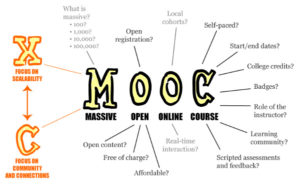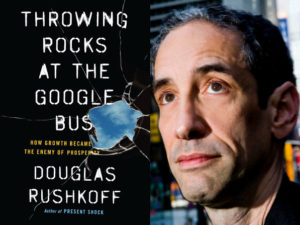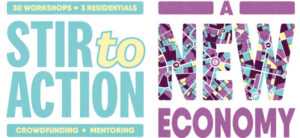Can you imagine a world without money? Summary of the ‘credit commons’ idea and how it could be achieved

Last week I blogged about a potentially world-changing idea that could be labelled ‘credit commons’, or the catchy ‘global mutual credit system’. It’s a system of exchange that involves no money. It’s difficult to grasp at first, but the more you think about it, the more you realise that a) it’s implementable, and b) if implemented, it has the potential to end poverty, war and environmental destruction. So worth a look, in other words.
I’m going to summarise the idea here, list some of the main questions that were generated via email, social media and the blog, and have a go at answering them below. I was advised to present the idea as an ‘elevator pitch’ – i.e. how would you present the idea to an influential person you have about a minute with in a lift? I don’t want to explain in academic terms, I want to ask you to imagine your life under this system. I’ve talked with a lot of people about this now, and I’ve managed to get the pitch down to about 3 minutes, in three sections (the idea itself / benefits / implementation). Here it is:
The idea
Imagine a system where you don’t get paid in money for your work. You get credit in an online account instead – either as an individual or as part of a co-op. And you pay for the things you need with debit. There’s a limit to how much credit or debit you can go into. There’s a tiny insurance premium on every transaction for when people can’t work – like social security, but organised by a co-operative insurance company, not the state. If you can work, but choose not to, you can’t buy anything. It’s up to you. It’s a free market, but you can’t receive credits for anyone else’s work, only your own. You can be self-employed, and try your hand at anything you like – you’re completely free. Or you can expand, by getting together with other people in co-operative businesses. But no-one can get credit for anyone else’s work. Credit where credit’s due, in other words. Members are part of a (usually geographical) group of known and trusted individuals and businesses. Transactions are secured via a blockchain, and there’s an online review system that builds people’s reputations.
Benefits
- The free market and lack of bureaucracy should satisfy the right, and the co-operative, non-exploitative nature of the system should satisfy the left.
- There’s no money, so it can’t concentrate in just a few people’s hands (which money always does), which means that it can’t be used to influence the political system, so we can have real democracy.
- If there’s no money, it can’t be scarce, so there’s no poverty. Anyone can join the system via a local group, anywhere in the world, at any time.
- And if there’s no money, it can’t be lent, and so there’s no interest. With no interest, the economy doesn’t have to grow cancerously to be able to repay it, and we can live in harmony with nature (something that is patently impossible in the current system).
- With no poverty, there’s no economic migration, and so no need for borders, and therefore no armies and no states and therefore peace.
- If cybergangsters bring down capitalism, we’ll be back to savagery in weeks. In this system, nothing is destroyed but an account whose overall balance is always zero. It can be started again from scratch really easily. And if the internet falls over too, it can continue on clay tablets or tally sticks, kept by our most trusted people (in pre-money times, the clay tablets with the accounts were often kept in the temple by the priests – see here).
- It doesn’t have to take anyone’s time – keep doing what you’re doing. If the idea starts to spread, you can join it tentatively, and if it works, increase your participation.
[NB: these benefits would only materialise if the idea reaches a certain scale. We’re far from that now, so this may appear wildly utopian (which of course it is). But all revolutionary ideas have to start somewhere – it’s the potential I’m talking about, not the likelihood of success.]
Implementation
This kind of mutual credit system exists locally in thousands of places around the world. Sometimes they are called LETS systems, sometimes ‘timebanks’ and they sometimes involve alternative currencies, tokens or vouchers. Two people, Matt Slater and Jem Bendell, are linking them so that they can intertrade, in a fledgling global mutual credit system. See the Community Exchange Systems Network. Also, see here for a paper by Slater on credit commons if you’d like to go deeper. It’s quite complex, and so probably needs some backgroud reading first.
If you squint and cross your fingers, you can start to see the co-operative movement switching to this system, paying wages in credit and receiving payments in debit. You can imagine getting your food this way, from community-supported agriculture, veg boxes, wholefood co-ops etc., plus your energy from community energy schemes, housing from housing co-ops, employment from worker co-ops or self-employment (you can have a go at anything and see if people want it. You could even offer yourself as an apprentice to learn a new skill, for enough credits to live on). Remember that half the world is involved in a co-op of some sort – over 3 billion people.
Questions
These are the main types of questions we’ve received:
Q: How do you stop fraud / theft?
A: Theft of credits would not be possible, because credits only come into existence when someone else goes into debit. Credits are tied to an individual or a business’s account, and can’t be held and accumulated like cash. Being a member of a local trading group where they are known and trusted would prevent people from absconding in debit.
Q: Won’t rich people try to stop it happening, or take it over?
A: How would they do it? Their wealth would be eroded anyway; people in this system won’t need their money; the only option would be to hire thugs to beat up people participating in this system. But if it grows to the point that it worries them so much that they have to do that, there will already be too many people in the new system to beat up (plus communities could hire co-operative security companies to protect themselves. It would soon be a case of ‘there are more of us than you’). Attempts to thwart the idea with violence would tarnish their reputation more than it’s already tarnished, and probably have the opposite effect to the one intended, pushing more people into the new system.
Q: Won’t people with assets have a massive advantage?
A: What kind of assets? Money assets would be worthless. Say if someone has a large house. It’s going to need a lot of maintenance, and that can’t be paid for with money, only work. So it’s going to take an awful lot of work for the upkeep of a large house. Large houses will become a burden for single owners and will naturally get split into flats (which can’t be rented out by a single owner – because there’s no money and a limit on credit, so they’ll be co-operativised, given away or squatted. The local arbitration committee will have no problem with homeless people squatting an unused building, (and neither should they) or taken over by co-ops. People will only work for the housing they need. The same with land. If you can’t work it, it’s not valuable to you. Land will naturally split into smallholdings big enough for people to work. Say someone has a large number of saleable assets. How are they going to sell them? There’s no money, and there’s a limit on credit. So they’d have to give the assets away, or have them sit around, cluttering the place up.
Q: How do you decide how much credit a piece of work is worth?
A: The two people or groups involved in the transaction decide, in a completely free market. If a plumber asks too much to fit a shower, you can find one who charges less. It will all balance out in the end, as people come to realise the true value of work.
Q: Couldn’t lazy people freeload?
A: No, because they’d need credits to be able to buy anything. If they don’t want to work, there’s nothing to force them, but they wouldn’t get insurance payouts (credits) if they’re able to work but choose not to.
Q: How would transactions be recorded / stored / ‘proven’?
A: Blockchain. Don’t ask me to explain, but I know people who can.
Q: Isn’t a free market a bad thing?
A: We tend to equate free markets with capitalism, but in capitalism, the state helps the corporate sector (politicians take jobs on corporate boards, corporations can avoid tax but small companies can’t, the state bails them out because they’re ‘too big to fail’ etc.). A real free market would remove this kind of subsidy, and allow people to offer or choose whatever products and services they like, based on a reasonable price (reasonable, or people won’t pay it). Exchange has always been part of human life, and if it’s not free, then who’s going to control it?
Q: What would be the role of the state?
A: Well, nothing, ultimately. The tiny transaction premiums would allow co-op insurance companies to provide healthcare and social security; there would be no need for borders or armies, as there would be no need for economic migration, and no need for attempted land grabs. This idea works anywhere – even (especially) for people with absolutely no money. Public safety could be via local co-operative security companies replacing the police, local arbitration committees overseeing the fulfilling of contracts, and no fraud because no-one wants to damage their online reputation, which would in effect put people in ‘jail’ until they could negotiate a re-write of their online profile after a long enough probation period of good behaviour.
Q: Won’t the right see it as egalitarian, and somehow socialist, and refuse to play?
A: The libertarian right shouldn’t have a problem with it, because it’s a route for getting rid of the state. And the right generally shouldn’t have a problem because there’s absolute freedom, including a free market, without the need for any of the planning / bureaucracy associated with socialism.
Q: How will we persuade enough people to do it?
A: People in poor countries would have an incentive to try it, because the alternative could be plantation or sweatshop work, or begging. If there was a way to get the essentials of life without money, why wouldn’t they try it? And in the West, there will be a lot of ‘low-hanging fruit’ who don’t like the current system, and see this as a way to get rid of it. Those people will have friends and family who they could persuade to give it a go. I believe that when people who are struggling for money (i.e. most of the world) try it, they’ll never go back. If we can get past people’s inertia and apathy to give it a try, those same qualities will keep them in the new system. Money won’t persuade people to leave it if money can buy fewer and fewer things, and your life is better without money.
Any more questions, or any comments on the answers above, please let us know below. If you think it has legs, I’ll be blogging much more about it, so subscribe to the blog, and share. Thanks.
The views expressed in our blog are those of the author and not necessarily lowimpact.org's
27 Comments
-
1nane May 21st, 2017
Yes, and let’s get rid of the government too.
-
2Dave Darby May 21st, 2017
Well, this system (in theory) removes the need for social security, due to the premiums payable to co-operative health and insurance companies. A problem to be overcome is negotiation of tax reduction if it can be shown that you don’t need their social security etc. Might be quite tricky; plus there would be no economic migration, because it works anywhere in the world, which removes the need for borders and passport control. Lots more research to do, but the legal system could be replaced by local arbitration committees for contract fulfillment (with the risk of loss of online reputation for bad behaviour. And the streets could be kept safe by local co-operative security companies. Long-term, you can imagine the winding down of the military and of taxes, and of the state.
-
3alexbayleaf May 21st, 2017
I’m not clear on whether you’re making this a LETS type system (where people set the prices for their own stuff) or a timebank system (where 1 hour = 1 hour) but there are problems with both that I don’t think you’ve addressed.
In a LETS system, where everyone sets their own prices for goods and services, what’s to stop someone renting property? “You can rent this apartment for 100 LETS a week.”
In a timebank system, how do people cover the cost of tools and skills? For instance, digging ditches is worth the same as car mechanics, but a car mechanic had to serve an apprenticeship, learn skills, acquire all the tools in her workshop, and use more electricity to perform the work.
An issue with both systems: some work is not seen as “work” in our society, and is unpaid, such as housekeeping, childcare, elder care, home maintenance, emotional labour, etc. How is this work remunerated in your system? If this work disproportionately falls to one part of the community, is there an inherent bias/lack of equality?
How are people with permanent or long-term disabilities, or others who can’t earn for whatever reason (eg. small children without families to care for them, older people with depleted credits), cared for in this system?
In all systems, you say credit couldn’t be stolen, but it could be fraudulently gained: “I have power over you. I demand that you pay me 100 credits a week for protection.” (Disguised as “fees” of any kind, or some spurious and invisible good/service.) Imagine an abusive relationship, or a cult-like community – you wouldn’t need an actual stick to beat people with, and a security service probably wouldn’t help prevent it. What prevents this?
How are users authenticated in the system (passwords, biometrics, ???) and what prevents someone using someone else’s account?
-
4Dave Darby May 22nd, 2017
Hi – very good questions, thanks for posting
First, this isn’t me – I’m trying to flag up Matthew Slater and Jem Bendell’s work with community forge and the Community Exchange Network. They’re linking up any mutual exchange schemes, from timebanks, LETS, alternative currencies etc. They’re devising a system through which all the different local systems can intertrade. I don’t know about the tech part – but I’ll try to find out.
But, as I understand it, it’s a free market, so (say) a plumber can ask for a certain number of credits to fit a new shower, and the buyer can accept or reject it, depending on whether they can find a better price from another plumber. In effect, prices are negotiated between participants in the transaction – nothing can be imposed, including prices.
What are the problems with LETS / timebanks that you mentioned?
The renting question is a good one. I’m in correspondence with Matthew, so I’ll ask him. There’s a limit on how far you can go into credit or debit, so no-one can rent out multiple properties because it would push them too far into credit. Maybe there would be mutualist principles attached to the whole project, so that you’re only allowed to obtain credits from work, not renting property.
But for me, there has to be a set of principles underlying the entire scheme – in the same way that slavery is not (officially) allowed in capitalism (although sweatshop work is more-or-less slavery, but it doesn’t involve the direct sales of captured people), then obtaining credit for someone else’s work would not be allowed, only your own – so own your own home, but not anyone else’s, no private employment (except maybe you can apprentice yourself to someone to gain skills), no interest, or shares (obviously, because there’s no money). Credit where credit’s due, in other words.
-
5Dave Darby May 22nd, 2017
‘In a timebank system, how do people cover the cost of tools and skills? For instance, digging ditches is worth the same as car mechanics, but a car mechanic had to serve an apprenticeship, learn skills, acquire all the tools in her workshop, and use more electricity to perform the work.’
As I understand it, credit commons is not timebanking. People obtain tools and skills by going into debit, then work to get credit and clear the debits. And it’s a free market, so ‘prices’ will reflect the scarcity of the skills. If you can’t find someone to fix your car for a price you’d like, then you’ll have to learn to fix it yourself.
‘An issue with both systems: some work is not seen as “work” in our society, and is unpaid, such as housekeeping, childcare, elder care, home maintenance, emotional labour, etc. How is this work remunerated in your system? If this work disproportionately falls to one part of the community, is there an inherent bias/lack of equality?’
I think this is only an issue in a money economy, where money is concentrated in few hands, and therefore has to be scarce for others. Money gives some people power over others. In a mutual credit system, if you want credits, you have to find someone else who will go into an equal amount of debit. If you keep / maintain your own house, look after your own children or elders etc, then you’re not going to find anyone to go into debit, because it’s for you and yours. In the family, it’s a ‘gift’ economy. If you need looking after at some point, you won’t expect your family to charge you. As there won’t be concentration of wealth, there won’t be any privilege in terms of wealth, so no financial compulsion. If anyone, anywhere, any time, wants to use the system to do useful work for someone else for credits, they can, so nothing would fall to any particular part of the community unless there was compulsion, which amounts to slavery, and of course wouldn’t be allowed.
-
6Dave Darby May 22nd, 2017
‘How are people with permanent or long-term disabilities, or others who can’t earn for whatever reason (eg. small children without families to care for them, older people with depleted credits), cared for in this system?’
It’s mentioned in the article – a small insurance premium on every transaction, to pay for ‘social security’, but administered by co-operative insurance companies rather than the state. This could be used to pay for social security generally, rather than linking premiums to individuals (which in a money economy means that more vulnerable people pay higher premiums). Doctor’s notes would still be required.
‘In all systems, you say credit couldn’t be stolen, but it could be fraudulently gained: “I have power over you. I demand that you pay me 100 credits a week for protection.” (Disguised as “fees” of any kind, or some spurious and invisible good/service.) Imagine an abusive relationship, or a cult-like community – you wouldn’t need an actual stick to beat people with, and a security service probably wouldn’t help prevent it. What prevents this?’
When you say ‘power over’, what would that look like in this system? It wouldn’t be financial power, because there’s no money. So it would have to be an individual threatening another individual with violence. I think that could easily be rooted out in communities (especially stronger, resilient communities that I believe this system would produce), by local co-operative security services. There aren’t going to be individuals wealthy enough to hire gangs of thugs, and any fraudulent behaviour would carry a big risk – loss of online reputation making it difficult to trade.
I think you’d still have abusive relationships or cult-like groups, but I actually think it would be more difficult and more easily exposed / escapable than in capitalism where money brings power.
-
7Dave Darby May 22nd, 2017
‘How are users authenticated in the system (passwords, biometrics, ???) and what prevents someone using someone else’s account?’
Blockchain. I don’t understand the workings (I don’t think many do), but it validates cryptocurrency transactions, and it can validate this. I’ll find out more.
Good questions. I’ll talk more with Matthew about rent and blockchain.
-
8Dave Darby May 22nd, 2017
Having thought about your questions a bit more, I want to say that this kind of society wouldn’t be rapacious / dog-eat-dog to get to the ‘top’, and would give people the space to work out ways to help people who are struggling (but not if they’re just lazy). So for example, the insurance premiums that everyone pays could / would be used as a general social security system, to provide credits for anyone in genuine need. That could include single parents – for a maternity / paternity period of leave from the need to find work. When the child(ren) attend school, there should be plenty of time to work for enough credit. I don’t imagine that it would require anywhere near 40 hours work to live well. At the moment, a huge proportion of everyone’s work is siphoned off in the form of profits and interest payments, (as well as unemployment payments that would no longer be required) and is concentrated in the hands of very few people. Release this wealth and there’s more than enough for everyone.
-
9elspethc May 22nd, 2017
Agree with what Alex says – especially I have immediate problem with notion of “work” as somehow equivalent to value to society without recognizing the history of blatant ism that definitions of work have always had. Never mind women’s work, emotional work etc, how does a depressed person (ill) manage his or her capable out and about days, where would their trajectory of recovery go? Similarly 10 year olds – do they work – I know some who do. This is a comment from someone who wants a start to these ideas, the notion of universal respect and rights needs to be more present in every phrase.
-
10Dave Darby May 22nd, 2017
Hi
(my interpretation): your first point is really interesting, because what you’re talking about is the labour theory of value. It states that all value comes ultimately from work – and if you think about it, it’s true. People make money from landlordism, stocks and shares, financial speculation, profit, interest etc. It’s a case of money making more money – but trace it back, and someone, somewhere has worked for that ‘value’ – they’ve just had a portion of it (and in the case of the hundreds of millions of people working in sweatshops or plantations, for example, a very large portion of it) taken away from them by ‘owners’, or shareholders, landlords etc.
As I mentioned, co-op insurance companies would provide ‘social security’ rather than the state – but this would be a less rapacious system, with more real ‘wealth’ freed up to look after the vulnerable.
We’d have to decide as a society whether we want 10-year-olds working. Personally, I wouldn’t mind them working for some of the time (bearing in mind that they can’t be exploited – no-one can steal their credits), and adults learning some of the time. Education and work can both be spread out over a lifetime. Children can be rewarded with credits by helping people in their community to do useful things. They can learn about different kinds of jobs, and it could help them decide what they want to do for a living.
Universal respect and rights would be hard-wired into the system because of the labour theory of value. No-one else can take credit for your work. In the current system, interest payments, rents and profits suck value from individuals and communities to concentrate wealth in very few hands. That’s the opposite of universal respect and rights.
-
11Mark Advertise the Resource Based Economy May 23rd, 2017
I think it’s a great progression from the present monetary system. If we also declared all planetary resources to be common heritage of all the worlds people, that would make economic inequality impossible as well as structural violence.
Copiosis (https://copiosis.com/) is a step in between what you are proposing and a Resource Based Economy (resources shared by all). People don’t have to pay anything for basic needs in Copiosis. This allows them to be in a position to actually negotiate a free exchange. Credits are only spent on luxuries. They are not exchanged to the person who supplies the luxuries, they are simply erased. People gain credits by bettering the world with work they do according to an open algorithm which calculates the positive effect on society and the environment that people’s actions have.
-
12Dave Darby May 23rd, 2017
That looks very interesting. I’ll give it a good look with a cuppa asap.
-
13Sam Ryan May 23rd, 2017
Looking very good Dave. My previous questions have been well-answered, so here’s another:
In this system, what role do you see technology playing?
It seems to me that most technology is far too complex and would require far too much global trade to produce many of the things we take for granted. Are you on the same page as Mark Boyle in that most tech will cease to exist? Obviously lots of frivolous stuff is not important, but what about the internet and laptops, solar panels etc.
-
14Dave Darby May 24th, 2017
I’ve argued with Mark that trying to sell a world with no internet, after people have had it, would be a very difficult sell indeed. So if we’re going to try to keep it (and I think we should – internet, wood stoves and local, organic food, let’s take the best of every age), it has to be powered, and the best way to do that in a non-corporate way would be via solar power.
It can be provided via community energy, sold via the Energy Co-op, or it can be installed on individual roofs, depending on whether you’re a rugged individualist or a collectivist. Either way, it’s not corporate.
We have individuals building wind turbines and solar thermal systems. I don’t know if it’s true of solar panels yet – probably not, although someone might correct me, but we already have perfectly viable software and operating systems, and in China and Indonesia, there are co-operatives making smartphones. See http://www.shareable.net/blog/how-a-cooperative-in-indonesia-is-bridging-the-digital-divide If we can persuade Fairphone to co-operativise, we’ll have one over here as well.
It’s seems to be moving in the way Kevin Carson is predicting in ‘the Homebrew Industrial Revolution’ – he envisages 3-D printers and open source software revolutionising production, and inevitably away from corporations, who, let’s face it, would be hideously uncompetitive if they couldn’t employ sweatshop workers or avoid tax.
-
15spacemao May 31st, 2017
Labour vouchers are an idea that go back to the 1800s and work in a similar way, the key for me with this is that
‘It’s a free market, but you can’t receive credits for anyone else’s work, only your own.’
this is the same with labour vouchers – and economists such as Paul Cottrell mention that with computers we can exactingly track the amount of labour time needed to make a cup of coffee, in his work, he talks that those who ‘make’ things in this economy and upload the material requirements as web pages on an internet, using this, we can use machine learning to optimise and balance supply and demand.
This is mostly existing technology used in major companies, and come the revolution, ? these are the tools we will inherit and, like it or not, have to build upon.
Going back to this point about it being impossible to earn money from others, that’s ideal, not just from a communist perspective but also from that of many religions as well, in Islam for example, it’s a sin to hold debt against another person, and if you have an islamic bank account you can’t have a savings account!
However, I don’t think this is going to satisfy the right. You have to bear in mind Dave that the right are not even satisfied with the current state of affairs where (in the UK) businesses are having 440bn of public money chucked at them, and all our public services (which we sweated blood and tears to build) are being opened up as ‘free’ markets for profitable exploitation by anyone, from collecting waste to regulating national exams. The whole point of the right is that they want to turn back the clock to the era of kings and queens, where wealth was considered a virtue from god.
They may not realise that this is the reactionary argument they make when they say ‘rich people create jobs’ but the entire gravitas of society is about exploiting surplus labour – currently people get half of the value they create returned to them through wages, if capitalists were forced to pay the full value of their work, it would annihilate the profit motive, and you’d have to deal with capital flight on an epic scale as well as very probably a civil war. Subsequently I wouldn’t bother capitulating to the right, all the gains we have made as a society has been inspite of the right, not because of them.
I am a leninist in the sense that I believe we have to recognise the value of tactical retreat, if we had state power, we could implement such a system, but without any alternative infrastructure to introduce labour vouchers (cooperative employers that people can move their work to) the capitalist classes would quickly move to boycott the economy, create infrastructure strikes to prevent essential goods being made or brought into the country, and do this for as long as they are able, or until you reintroduce capitalism and integrate this system back into the market. If you look at the example of Allende and even Chavez (who was barely a socialist) they rich will do far worse than ‘hire thugs’ and the transition of people into this alternative economy will not be instantaneous, meaning that you either prepare for violence or take smaller steps (whilst also defending the gains you have made – which will be violently attacked – every experience of progressive governments we have tells us this.)
Additionally, you cannot leave the rich to have their wealth, they already have ALL the wealth and ALL the power, in britain they even hold all the land. This system has not accidentally ended up like this, it took the murder and slaughter of peasants in the enclosures and clearances only a couple of hundred years ago to produce the capital on which capitalism was initially developed. If you want to leave rich people with the wealth that they and they predecessors acquired through imperialist adventure and hundreds of years of violence and exploitation that’s your call, but they will absolutely use it against you and are not afraid to sink the whole ship to maintain their power.
On a global scale, this is what they are already doing, by continuing to leverage environmentally destructive technologies to maintain their own capital – this is when they are only in competition against each other, when the currency (upon which their wealth is built) is debased, they will intensify the class war that they are already waging against us.
Anyway, I have some videos that clarify some of the points I am making here, I think you might enjoy mr cottrells economic analysis, you will see how (in essence) this is a labour voucher system. Though there may be some key differences I have failed to identify.
https://www.youtube.com/watch?v=5U4e6ALxOhk
https://www.youtube.com/watch?v=GGJbrn_42jA
https://www.youtube.com/watch?v=Id–ZFtjR5c
-
16Dave Darby May 31st, 2017
The thing with the right (and we’re talking hypothetically of course – if, if, if this can get traction and be available anywhere, to anyone), if people in poor countries give it a go and it works, they’re not going to want to go back to working in sweatshops or plantations. If the idea goes viral, then boom – no more cheap labour for capitalists. What are they going to do then? They can’t outcompete small- or medium-sized businesses (co-ops) or the self-employed, they can’t use violence (what are they going to attack?), and they can’t buy their way out of it because their money will lose value the longer they try to hold on to it. They’re going to have to work themselves (shock horror), or sit on the streets and beg, wondering why God isn’t blessing them with riches any more.
So yes, I sort of agree. Having said that, there are a lot on the right who are anti-corporate – there really are. They favour hard work, personal responsibility, independence and freedom – all fine things, I think. They’re more in favour of small businesses, self-employment, family farms, but not the corporate sector, and especially not the banks, because they can see that they compromise freedom. The right were more vocal than the left about NOT bailing out the banks. They’d have preferred the free market to reign – they fucked up, let them die. But of course the market can never be free in capitalism, because capitalists have the state to give them all the corporate welfare they need. So even though we don’t need to court them, there will still be many on the right who would give it a go, or at least not oppose it from the gut, because it doesn’t involve state power. Or a state at all, eventually, which could really interest the libertarian right. Surely they wouldn’t balk because there was no way to exploit people by stealing the value of their work? That would just be evil, and not many people are truly evil.
But we’re back to our main difference again. Which state would introduce this? Why would they give away the power that they’d worked hard by climbing the greasy pole to achieve? No, the only way to introduce it is by the people directly. Your ideas about infrastructure strikes / damage are really interesting (and worrying), but they would be hurting themselves as much as the people. And what would they use violence on (and if the source of their cheap labour disappears, what would they pay soldiers)? The system would exist on decentralised nodes, with no centre to attack, and even if the internet crashes, it could revert to clay tablets and tally sticks, whereas if the internet falls over under capitalism, people in London (and Glasgow) would be eating each other within a week.
I completely agree with the way capitalists have attained wealth and power, and what they’d do to keep it (as you know), but really, what would they attack? As I said, even if they take down the internet, their wealth is gone, but not the credit commons, because there’s no value in it. It’s just an account, and the total of all the credits and debits in it is zero, so there’s nothing to destroy. Meanwhile, we wouldn’t be leaving them with their wealth, because without cheap, exploited labour, their wealth would erode to nothing. Labour is where all value comes from. Those who say otherwise haven’t stopped to think what would happen if all workers stopped working. They’d have to work themselves or starve, because value isn’t going to come from anywhere else.
And yes, a labour voucher scheme, but without the vouchers, just interweb credits, and you don’t have to pay anything for credit, vouchers, bitcoins or anything else.
Right, cup of tea and those videos.
-
17Dave Darby May 31st, 2017
I wonder what came first, labour vouchers or the credit commons model, which was first tried (albeit just in Ohio) in 1836. It was revived by Proudhon in the late 19th century, then by Clarence Lee Swartz in the 1920s (although with quite a complicated model – which I suppose it had to be before the internet), and again now. But the difference now is the internet and blockchain.
-
18Dave Darby June 1st, 2017
I’ve seen the Chile / Venezuela vids before, many years ago. Cockshott is interesting. But there’s a difference between a free market and capitalism. In fact it’s impossible to have a free market in capitalism. There is so much corporate welfare provided by the state. I know you know this, so I won’t go into it. I’m a mutualist, and mutualism is free-market anti-capitalism. The crucial thing is that no-one gets to make money, or take credit, for anyone else’s work, only your own. When you say it like that, it sounds obvious. Taking from someone else’s work sounds a bit like slavery – and it is. But it rules out interest, stocks and shares, landlordism and private employment. Capitalists will say that people who work hard, build a company and provide jobs should be allowed to make profit – which is making money from other people’s work. But should they be allowed to do that forever, and pass the company onto their children, for them to continue making money from other people’s work? Or to sell shares so that shareholders can make money from other people’s work? I think that people who build businesses should be recompensed for the work they’ve put in. Entrepreneurs often spend years working for nothing, to build a business, and when the company is making money, they should be recompensed for that. But not by taking a percentage of other people’s work forever.
I’m guessing we’re on the same page with that. But at one point he says that labour vouchers would be cancelled when spent, and that they wouldn’t have to be on paper – the system could be computerised. That sound pretty much the credit commons model – in which case, why the need for planning at all? The market will sort out prices and what’s produced. Why waste resources on bureaucracy? I might be missing something crucial, but I can’t see why it would be necessary. Just charge what you think is right (in credit, rather than money in the credit commons model), and if no-one wants your services, you’ve pitched it too high. If you’re swamped, you might want to think about raising your price. If you’re too greedy, there will be others willing to provide what you’re offering for less. What economic planning is needed in a free market?
Compensation for work done would be perfectly acceptable in a mutualist society, and if that society was based on credit commons, the inability to make money from other people’s work would be built in. To try to impose it via the state would be logistically extremely difficult and resource-heavy, and keeping corruption and coercion out would be virtually impossible. No, I’d say impossible. I worked in Romania in the 90s, and everyone had horror stories. Planning is an unnecessary burden, that wouldn’t be required under mutualism / credit commons. The same with Albert’s Parecon or Bookchin’s libertarian municipalism – different, planning-heavy (albeit locally) versions of anarchism. Marx wanted the state to wither eventually. This is a way to wither it immediately.
[one other point – we’ve been talking about a new economy, but there would also need to be a decision-making system that sits alongside it I think. Not one that plans the economy, but for example, about whether we should continue developing AI, genetic engineering or nanotechnology, or whether those technologies are just too dangerous because of the potential for them to spiral out of our control. He suggests referenda, but most people have no idea about those things. But that’s a whole new discussion.]
-
19james bate June 1st, 2017
Hi Dave
Read Paul Mason’s end of capitalism , good start but fizzled out to nothing, I’m afraid his chapter on labour theory did for me , what little I understood didn’t seem relevant today.
Reading a much better take by Charles Hugh Smith a US blogger n author, was taken by the title – A Radically Beneficial World : Automation, Technology , and Creating Jobs for All.
So far it’s lived up to its title full of interesting stuff much along the lines that have been discussed here but with some well thought out tweeks , LETS meet crypto really worth a read .
He’s had a varied career including being a builder , I think we should all do a bit of that the same way Thais are monks for a while or the less enlightened do military service, it’s grounding and educational plus the banter of course.
The sub title is “The future belongs to work that is meaningful ”
His blog is oftwominds.com but sure you come across him.
-
20Dave Darby June 2nd, 2017
Thanks, I’ll try to have a look. I wrote about Mason here – http://www.lowimpact.org/condensed-paul-masons-post-capitalism-a-guide-to-our-future/. I remember thinking that his ‘tending towards zero’ idea only works for information, and although I agree, someone has to work to produce real things, like food, housing, energy, clothes etc. If you trace anything of real value back far enough, someone, somewhere has worked to provide it. We don’t need bankers, advertising, PR, corporate lawyers, salespeople or politicians, (‘bullshit jobs’ as David Graeber calls them), but we do need people growing our food and building our homes.
-
21Peter Green July 23rd, 2017
Does the proposed system permit anonymous “purchases” in the same way that cash does today? If not, it’s a grotesque invasion of privacy.
-
22Dave Darby July 23rd, 2017
Yes. The front end is much the same as now, but with a) transactions secured (and anonymised)via blockhain (the mechanisms of which you’ll probably understand better than me); and b) a back end that doesn’t involve banks, interest and wealth/poverty.
-
23Matthew Moore July 24th, 2017
I think its all a very good idea…but it would involve a complete revolution in our concept of nationhood, and how goods get distributed around the planet… which is all great, just something I dont think you can switch to without massive reprocussions, reproccisions which are both excactly what the planet needs, but also massively destabilising, as to the current situation, and therefore something that wouldnt be taken lightly…
Right now, obviously, some areas of the world, and nations, create credit (as interest bearing debt) internally, via finanical apparatus which they have dominion over.. this credit, either directly, or indirectly can be used to buy wealth, materials, avacodos, coffee, etc from other areas of the world that dont have the situation to simply create their own credit (debt) and keep their own produce… basically because finance and credit rules, which at a subsequent level becomes ‘money’, to us everyday folk, is the backbone of the infrastructure, and only finance and credit from certain countries and currencies counts, on a global scale..
And so we have a massive inequality of the flow of goods, due to this credit imbalance.. which is obviously very unfair and creates poverty, but also keeps the us westerners thinking we deserve everything we have, pineapples and metal, and whatever, as its paid for, with money (which is actually an unequal global credit exchange)
So buy democratising credit, globally, we would essentially be vastly reducing the distribution of real wealth of the western world, through unequal credit, and rebalalancing it so that wealth is much more likely to remain spread out…
obviously this is good thing, but i dont think many in the western world, would simply give up stealing the rest of the worlds wealth via the current credit system… ie the bit where poverty is irradicated is the bit where the realtive wealth of the western world decreases, and the available goods, drops…
Im not arguing to keep it like that, just pointing out there would be a lot of resistance, and i dont think a magic bullet idea will have much traction effect until a lot more is unraveled as to how we are essentially screwing each other over… ie i dont think we would simply switch over, and all is good… the implications are vast and complex
-
24Matthew Moore July 24th, 2017
In a nutshell i mean the current ‘neo liberal’ right (that may call itself the centre) relies on credit creation inequality at top level between nations, to distribute goods unevenly, and effectively plunder the rest of the world… this is the bedrock of the system.. i cant imagine they would be on board to create credit equality, because that means equality of wealth distribution globally, which is the nemisis of the neo liberal agenda..
The genuine liberatarian right however im sure would be into it.. but i dont think they are the problem.
-
25Dave Darby July 24th, 2017
I think you might be right – that the libertarian right (i.e. the ‘real’ right, supporting true independence and freedom, rather than corporate apologists) might support it. And I also think you’re right that there would be resistance from the corporate West. The system would be so dispersed though, that it’s difficult to see what they’d do about it. There would be no centre to bomb, and no leaders to put in jail. If people who have no money (i.e. most of the world) begin to realise that they can get things they need without money (or without having to work in sweatshops or plantations – or in the West, in supermarkets, telesales or on zero hours contracts), then it could really take off.
But I like it because even if it doesn’t take off, or if it’s stopped – it makes you see that a different economy is possible, albeit with a difficult transition process.
-
26Kate Martignier January 5th, 2018
Hi! love the article and the idea. Question: I can think of one thing I would want to “Save up” money for, and thats my kids future education expenses (we home school right now, so their education costs nothing, but I’m thinking of formal education they might choose to take on when they’re a bit older). How might the system you are talking about, provide or allow for this?
-
27Dave Darby January 5th, 2018
Hi Kate. I’m learning more about mutual credit / credit commons. I’m relatively new to it, and there’s more to it than I first realised. Saving, for example. I believe that there can be a system of savings and borrowings (for houses, to start businesses etc.), but without interest (although there would need to be some sort of insurance premium to cover the risk of default).
We’re hosting a webinar by the author of the white paper on credit commons, tomorrow morning, 11am GMT. Why don’t you join us – you can ask questions directly.
More info here – https://www.lowimpact.org/webinar-can-we-change-the-world-without-changing-money/
See you tomorrow?
cheers
Dave




 This is the best attempt I’ve seen at building a sustainable, democratic, (and inevitably moneyless) economy. It’s worth understanding what they’re saying
This is the best attempt I’ve seen at building a sustainable, democratic, (and inevitably moneyless) economy. It’s worth understanding what they’re saying
 Part-time work available in the Lowimpact.org team
Part-time work available in the Lowimpact.org team
 It’s worse than you think: review of Douglas Rushkoff’s ‘Throwing Rocks at the Google Bus’
It’s worse than you think: review of Douglas Rushkoff’s ‘Throwing Rocks at the Google Bus’
 Explaining mutual credit to small business owners
Explaining mutual credit to small business owners
 John Thackara: ‘Strange’ ideas don’t sound so strange in strange times
John Thackara: ‘Strange’ ideas don’t sound so strange in strange times
 Join our presentation: the Credit Commons protocol – tech agnostic, low-friction transactions for all
Join our presentation: the Credit Commons protocol – tech agnostic, low-friction transactions for all
 Let’s build a sustainable, non-corporate world; but what exactly does ‘non-corporate’ mean?
Let’s build a sustainable, non-corporate world; but what exactly does ‘non-corporate’ mean?
 How money causes poverty (plus war and ecological destruction), and what could replace it
How money causes poverty (plus war and ecological destruction), and what could replace it
 Why the banks have so much power and how we can take it away from them
Why the banks have so much power and how we can take it away from them
 How much electricity does Bitcoin consume, and what are the alternatives?
How much electricity does Bitcoin consume, and what are the alternatives?
 Campaign launched to build a ‘new economy’ through a practical programme of workshops, mentoring, and live crowdfunding
Campaign launched to build a ‘new economy’ through a practical programme of workshops, mentoring, and live crowdfunding
 How to build a global, moneyless, interest-free trading system: Matthew Slater of the Credit Commons Collective
How to build a global, moneyless, interest-free trading system: Matthew Slater of the Credit Commons Collective
 Matthew Slater’s review of recent money news
Matthew Slater’s review of recent money news
 Housing co-op seeking founder members
Housing co-op seeking founder members
 Co-operatives
Co-operatives
 Credit unions
Credit unions
 Cryptocurrencies
Cryptocurrencies
 Downshifting
Downshifting
 Local / independent currencies
Local / independent currencies
 Low-impact money
Low-impact money
 Mutual credit
Mutual credit
 Commons economy
Commons economy
 Philosophy
Philosophy


